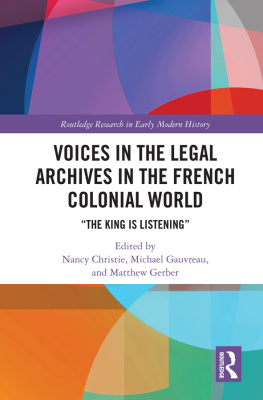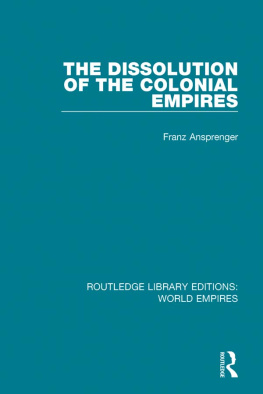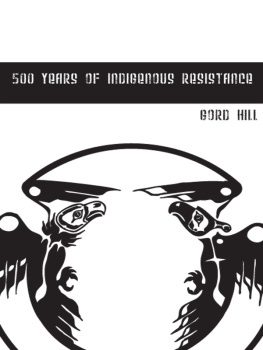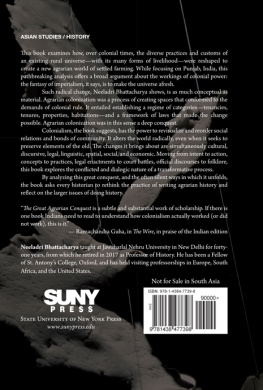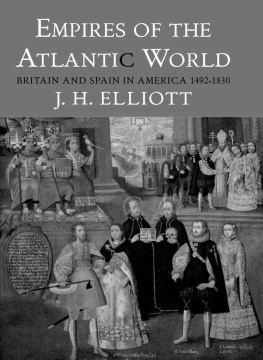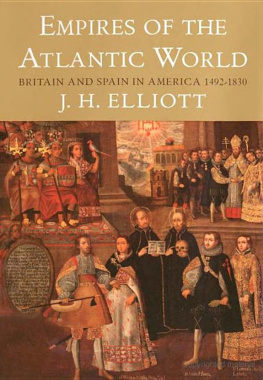Constanze Weiske - Lawful Conquest?: European Colonial Law and Appropriation Practices in Northeastern South America, Trinidad, and Tobago, 1498–1817
Here you can read online Constanze Weiske - Lawful Conquest?: European Colonial Law and Appropriation Practices in Northeastern South America, Trinidad, and Tobago, 1498–1817 full text of the book (entire story) in english for free. Download pdf and epub, get meaning, cover and reviews about this ebook. year: 2021, publisher: Walter de Gruyter GmbH & Co KG, genre: Politics. Description of the work, (preface) as well as reviews are available. Best literature library LitArk.com created for fans of good reading and offers a wide selection of genres:
Romance novel
Science fiction
Adventure
Detective
Science
History
Home and family
Prose
Art
Politics
Computer
Non-fiction
Religion
Business
Children
Humor
Choose a favorite category and find really read worthwhile books. Enjoy immersion in the world of imagination, feel the emotions of the characters or learn something new for yourself, make an fascinating discovery.

- Book:Lawful Conquest?: European Colonial Law and Appropriation Practices in Northeastern South America, Trinidad, and Tobago, 1498–1817
- Author:
- Publisher:Walter de Gruyter GmbH & Co KG
- Genre:
- Year:2021
- Rating:5 / 5
- Favourites:Add to favourites
- Your mark:
Lawful Conquest?: European Colonial Law and Appropriation Practices in Northeastern South America, Trinidad, and Tobago, 1498–1817: summary, description and annotation
We offer to read an annotation, description, summary or preface (depends on what the author of the book "Lawful Conquest?: European Colonial Law and Appropriation Practices in Northeastern South America, Trinidad, and Tobago, 1498–1817" wrote himself). If you haven't found the necessary information about the book — write in the comments, we will try to find it.
The global expansion of European colonization is commonly perceived as lawful according to the valid European colonial law of the time. This book is substantially challenging this belief by uncovering its legal justifications based on discovery and terra nullius as retrospectively created legal fictions and demonstrating it s untenability in practice. Focused on the critical reconstruction of Spanish and Dutch colonization practices in northeastern South America, Trinidad and Tobago between 1498 and 1817, the book offers an illuminating view on the European shadow of the colonial past in the Americas. Based on the application of an innovative comparative spatio-legal Global History approach to 1,770 excavated European colonial written sources from archives of both sides of the Atlantic in comparison to the colonial legal provisions of Europe s most influential legal writers, the book, moreover, provides a substantial argument to the contemporary Caribbean-European reparation debate in favor of the return of Indigenous Peoples historical territories. Therefore, the book calls for the extension of the traditional territory approach to reparations of the United Nations Declaration of the Rights of Indigenous Peoples (UNDRIPs) and the Inter-American Court of Human Rights (IACHR).
Constanze Weiske: author's other books
Who wrote Lawful Conquest?: European Colonial Law and Appropriation Practices in Northeastern South America, Trinidad, and Tobago, 1498–1817? Find out the surname, the name of the author of the book and a list of all author's works by series.

